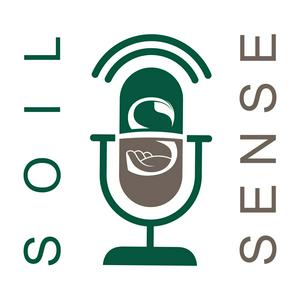Building Soil Health for Soil Function
In this episode we wrap up season seven of the soil sense podcast with a well known and well respected farmer and long-time soil conservationist, Barry Fisher. Barry recently retired from his career at the USDA, where he most recently worked in the soil health division. In that capacity he met and spoke with farmers about soil health throughout the central part of the US. Since retirement, Barry manages his family farm in Greencastle, Indiana and has a consulting business where he does training and soil health education for organizations through Fisher Soil Health LLC. Barry discusses soil health principles, important considerations for transition to regenerative practices, and the essential role of a knowledgeable advisor.
“If you really think about it, our current crops are only feeding the biology June, July, a little bit of May, and maybe a little bit of August. That's a very small percent of the total year… We did a lot of talking about no till as far as protecting erosion, but when we added cover crops to it, that was a game changer in that now the cover crop immediately fed more biology longer. That biology immediately started providing aggregate stability which absolutely helps the surface infiltration of soil, the aeration of soil. You know you start getting better structure to the surface of the soil and that can happen in as little as one season when we add cover crops.” - Barry Fisher
One visual Barry has used to help demonstrate soil health to producers is what he has called the “fence row effect.” Previous fence rows can illustrate the value and yield potential when incorporating the four principles of soil health. There is a reduction in disturbance, added diversity of plant life, maintained living roots in the soil and because of that the soil is kept covered. These four principles can allow producers to see a bump in yield in these areas. Barry goes on to explain how to generalize some of those principles on an operation-wide basis.
“Generally there's some farmer in the front row that says, “Okay Fisher, that's great, but, my landlord wants me to farm the whole farm, not just the old fence rows.”... I can show those aerial photos where management on one farm had the four principles kind of in place and the management on the farm right next to it did not. And the aerial photo is very telling that yes, we can manage beyond the fence row. We can get that fence row effect across the entire farm.” - Barry Fisher
This Week on Soil Sense:
Meet Barry Fisher a current Indiana farmer and retired USDA soil conservationist
Explore what Barry calls the “fence row effect” and how that can be applied to demonstrating the four principles of soil health
Discover Barry’s recommendations in transitioning tillage and cover crop practices
Thank you to the Soy Checkoff for sponsoring this Farmers for Soil Health series of the Soil Sense podcast. This show is produced by Dr. Abbey Wick, Dr. Olivia Caillouet, and Tim Hammerich, with support from the United Soybean Board, the University of Missouri Center for Regenerative Agriculture and the Soil Health Institute.
If you are interested in what soil health looks like in practice and on the farm, please subscribe and follow this show on your favorite podcast app, and leave us a rating and review while you’re there. Check out the Farmers for Soil Health website at FarmersForSoilHealth.com.
